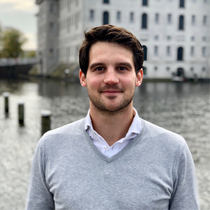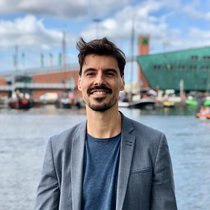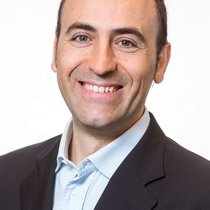The international research project aims to: support innovative and ambitious cities and municipalities on their pathway to Positive Energy Districts through easy, clear and understandable guidelines, targets and strategies.
SIMPLY POSITIVE helps the emergence of Positive Energy Districts and the transition to Climate Neutral Cities. On the example of four focus districts from different European Countries we will establish and test strategies how to tackle the necessary energy transition with ease: PV maximization, energy storage, usage patterns, and common climate and energy action plans. Based on a common PED definition framework for existing urban districts we will show how to best monitor and visualize achieved results.
Images show the visibility of rooftop potential of economically feasible solar panels to support permit requests in urban heritage areas.
The international research project will expand on the research done and delivered as part of the PV Advent Calendar in collaboration with TU Delft, PV Works and City of Amsterdam. As part of the wide variety of understandable guidelines, targets and strategies, two collaboration results for the city of Amsterdam are:
- A geo-referenced multi-layer mapping will be realized based on the focus district of Amsterdam, overlaying the PV potential on every roof on other maps, such as roof uses, protected areas, water management, and voltage grid fluctuations. Intersecting information from this complex and informative map, a very realistic PV potential for the whole city and applicability to the other Focus Districts will be carried out. Further on, automation of the decision across four different installation modes of PV modules will be defined to optimize energy usage and minimize esthetical interference: (i) landscape vs portrait vs east-west, (ii) aesthetic compactness of installed PV systems, (iii) modules visibility from street view, and (iv) energetic output of PVT modules.
- A prioritization strategy for cities will be developed to serialize the installation of PV systems across their urban fabric to raise awareness of the given PV potential. Several factors will be taken into consideration: (a) economical (feed-in tariffs, LcoE and RoI of urban PV systems), (b) energetic (known or computed bottlenecks in mid-low voltage distribution grid), prioritization of PVT over PV regarding the heat transition, (c) architectural (status of building permits, planned constructions, etc.), and (d) governance (ownerships, collective projects). The strategy will be based on the data from Amsterdam with focus on replicability and usability all other SIMPLY POSITIVE focus districts
“Simply Positive project will enable to further upgrade our modelling framework for the massive implementation of PV(T) systems. We look forward to running our models for gaining deeper insights on city-level solar potential, to valorize our research through the test case at city of Amsterdam, and to comparing our results with other European local realities.”
Olindo Isabella
Associate professor & AMS PI
| Duration: |
|
Principal Investigators
Project members

Helmut Bruckner
Sonnenplatz Großschönau
Paul Voskuilen
AMS Institute
Ioannis Ioannidis
AMS Institute
Caspar Egas
AMS InstitutePartners








